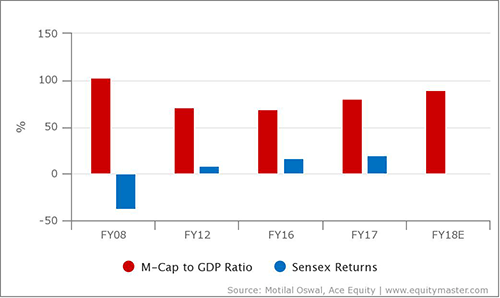Asian stock markets fell sharply following a severe rout in the U.S., with declines deepening from a day earlier. The Nikkei 225 is off 5.26% while the Hang Seng is down 4.31%. The Shanghai Composite is trading down by 2.1%.
The Dow Jones industrial average plunged by 1,175 points, its largest single-day points drop in history.
In the biggest global sell-off since 2016, financial markets from Asia to Europe to the United States were rocked primarily by concerns about inflation. The Dow was off a heart-stopping 1,600 points during afternoon trading, the largest intraday point decline in the blue-chip index’s history.
The Dow’s dive erased gains for the year so far and extended a multi-day slump that saw the Dow drop by some 600 point.
While market fear may not be based in any change in economic fundamentals, in its last meeting under chair Yellen, the Federal Reserve indicated it expects inflation pressures to increase through the year.
According to projections released in December, officials expect three rate hikes in 2018 — so long as market conditions remain broadly as they are — but some economists believe the central bank could add another increase at its final meeting of the year.
Meanwhile, Indian share markets too have opened the day deep in red. BSE Sensex is trading lower by 1075 points and NSE Nifty is trading lower by 301 points. S&P BSE Mid Cap is trading lower by 4.2% and S&P BSE Small Cap is trading down by 4.3%.
Losses are largely seen in consumer durables stocks, metal stocks and realty stocks. The rupee is trading at Rs 64.03 against the US$.
The Market cap to GDP ratio for Indian companies is close to dangerously high levels. While this is still some way off the peak of FY-08, when it had once reached close to 150, it’s relatively high.
FY17 saw this ratio reach close to 80. It is also expected to increase further given the moderate growth expectations in India’s GDP for FY18. Warren Buffett once considered this as one of the best valuation metrics to gauge the markets.
The Warren Buffett Indicator Suggests Indian Equity Market Is Overvalued

Past history shows some correlation between the ratio and the share market. 2008 saw Sensex decline by 38%, when this ratio crossed the 100 mark. Also, the market has bounced back sharply when this ratio was low.
The basic assumption in this ratio is that whenever the GDP of the country grows, the market performance will reflect it. Also, when stocks do well, it can be extrapolated to assume the Indian economy is doing well.
In news from automobile sector, Tata Motors’ third quarter consolidated earnings missed analyst expectations on Monday due to weak Jaguar Land Rover show; but standalone or domestic business reported healthy performance backed by strong commercial vehicle segment performance and cost reduction efforts.
Net profit rose to Rs 12.14 billion for the three months ended December from Rs 1.11 billion in the same period a year earlier, the biggest jump in seven quarters.
Sales in JLR unit rose just 3.45% from a year ago to 154,447 units. While sales in the US and Europe declined, sales growth in China slowed to 14.6%. JLR’s sales were weighed by few launches and model refreshes during the year. The company expects to maintain an Ebitda margin of 8–10% in the medium term.
Tata Motors’ passenger and commercial vehicle business performance was strong for the quarter as standalone profit stood at Rs 1.83 billion in Q3 against loss of Rs 10.45 billion in same period last year.
In another development, Tata Motors Ltd and Warburg Pincus Llc have mutually agreed to call off the US private equity firm’s proposed investment of around US$360 million in Tata Technologies Ltd.
Due to delays in securing regulatory approvals as well as due to the recent performance of the company not meeting internal thresholds because of market challenges, the parties mutually decided not to proceed.
Tata Motors share price opened the trading day down by 7.2% on the BSE.
Moving on to news from telecom sector. As per a leading financial daily, Singapore Telecommunications Ltd (Singtel) will indirectly raise its stake in Bharti Airtel Ltd by investing Rs 26.49 billion in Bharti Telecom Ltd, the promoter company of Airtel, through a preferential allotment of shares.
With this investment, Singtel’s total stake (along with its affiliates) in Bharti Telecom will increase to 48.9%. Singtel currently holds 47.17% stake in Bharti Telecom. Bharti Enterprises continues to hold over 50% stake in Bharti Telecom.
The investment comes within 23 months of Singtel’s participation in Bharti Telecom’s Right Issue of Rs 25 billion, which was completed in February 2016.
Bharti Airtel’s quarterly profit for the December quarter plunged 39% to Rs 3.06 billion, as India’s telecom regulator more than halved interconnection fees and a pricing war triggered by the entry of Reliance Jio Infocomm continued unabated.
Airtel’s net debt as of 31 December was Rs 917.13 billion, up from Rs 914.80 billion as of 30 September.
Bharti Airtel share price opened the trading day down by 2.3%.
This article was originally published in English at www.equitymaster.com
Read the complete Indian stock market update. For the terms of use, go here.
No comments:
Post a Comment